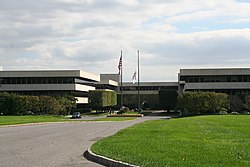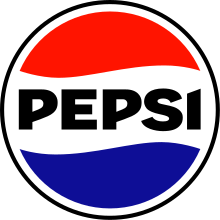**History and Corporate Development:**
– Pepsi was created by Caleb Bradham in North Carolina in 1898.
– Pepsi-Cola Company was founded in 1902 and incorporated in 1919.
– Pepsi merged with Frito-Lay, Inc. in 1965 to become PepsiCo, Inc.
– PepsiCo has a rich history of acquisitions, including Tropicana Products in 1998 and Quaker Oats Company in 2001.
– PepsiCo operates in over 200 countries and territories, with annual net revenues exceeding US$70 billion.
– The company possesses 23 brands with over US$1 billion in sales annually and is ranked as the second-largest food and beverage business globally.
**Product Portfolio and Business Divisions:**
– PepsiCo’s flagship products include Pepsi and Lays, with an expanded product range beyond soft drinks and snack foods.
– The company’s business divisions include PepsiCo Beverages North America, Frito-Lay North America, Quaker Foods North America, Latin America, Europe, and Africa, Middle East, South Asia (AMESA).
– Each division contributes significantly to PepsiCo’s net revenue, with a diverse product mix consisting of both foods and beverages.
**Financial Performance and Market Position:**
– PepsiCo reported robust earnings and revenue figures, with annual revenue reaching US$62.525 billion in 2017.
– The company’s shares traded at over US$109 per share in September 2018, and it ranked No. 45 on the 2018 Fortune 500 list.
– PepsiCo’s market reach is extensive, with a strong presence in the U.S. refreshment beverage market and a significant share of the U.S. snack food market.
– The company’s growth strategies include innovation, marketing campaigns, acquisitions, strategic partnerships, and sustainability initiatives.
**Global Presence and Acquisitions:**
– PepsiCo has a global presence in over 200 countries and territories, making it one of the largest food and beverage companies in the world.
– The company has made strategic acquisitions and partnerships, such as acquiring Bare Foods, SodaStream, and Rockstar Energy, to diversify its product offerings.
– PepsiCo’s acquisitions have expanded its market reach and product lines, enhancing its competitiveness in the industry.
**Challenges and Criticisms, Competition, and Unique Ventures:**
– PepsiCo faces challenges related to environmental impacts in its supply chain and criticisms for high-calorie, poor nutrition products.
– The company competes with The Coca-Cola Company in the beverage market and has engaged in unique ventures like the barter deal with the Soviet Union in the 1970s.
– PepsiCo’s unique ventures, such as the Soviet Union barter deal involving Pepsi syrup and acquiring Soviet assets, have contributed to its historical significance and global recognition.
PepsiCo, Inc. is an American multinational food, snack, and beverage corporation headquartered in Harrison, New York, in the hamlet of Purchase. PepsiCo's business encompasses all aspects of the food and beverage market. It oversees the manufacturing, distribution, and marketing of its products. PepsiCo was formed in 1965 with the merger of the Pepsi-Cola Company and Frito-Lay, Inc., PepsiCo has since expanded from its namesake product Pepsi Cola to an immensely diversified range of food and beverage brands. The largest and most recent acquisition was Pioneer Foods in 2020 for US$1.7 billion and prior to it was buying the Quaker Oats Company in 2001, which added the Gatorade brand to the Pepsi portfolio and Tropicana Products in 1998.
 | |
 Global headquarters building from the Donald M. Kendall Sculpture Gardens in Harrison, New York, in the hamlet of Purchase | |
| Company type | Public |
|---|---|
| |
| Industry | |
| Founded |
|
| Founder | Caleb Bradham (for the Pepsi-Cola Company branch) |
| Headquarters | Donald M. Kendall Sculpture Gardens, , |
Area served | Worldwide |
Key people | Ramon Laguarta (Chairman & CEO) Jamie Caulfield (EVP and CFO) |
| Products | See list of PepsiCo products |
| Revenue | |
| Total assets | |
| Total equity | |
Number of employees | 318,000 (2023) |
| Subsidiaries | List of subsidiaries |
| Website | pepsico |
| Footnotes / references | |
As of January 2021, the company possesses 23 brands that have over US$1 billion in sales annually. PepsiCo has operations all around the world and its products were distributed across more than 200 countries and territories, resulting in annual net revenues of over US$70 billion. PepsiCo is the second-largest food and beverage business in the world based on net revenue, profit, and market capitalization, behind Nestlé. In 2023, the company's seat in Forbes Global 2000 was 82. PepsiCo's flagship product, Pepsi Cola has been engaged in a rivalry for generations with Coca-Cola; it is commonly referred to as the cola wars. Although Coca-Cola outsells Pepsi Cola in the United States, PepsiCo within the North American market is the largest food and beverage company by net revenue. Ramon Laguarta has been the chief executive of PepsiCo since 2018. The company's beverage distribution and bottling is conducted by PepsiCo as well as by licensed bottlers in certain regions.

 PepsiCo's Pepsi, the namesake, and Lay's, are its flagship brands.
PepsiCo's Pepsi, the namesake, and Lay's, are its flagship brands.Pepsi has been repeatedly criticized by environmentalists for its relationship to negative environmental impacts of agriculture in its supply chain and in its distributing operations, such as palm oil–related deforestation and pesticide use, its use of water resources, and the negative impacts of its packaging—Pepsi's packaging has consistently been one of the top sources of plastic pollution globally. Similarly public health advocates have criticized Pepsi's high-calorie, poor nutrition product lines along with other popular snack and drink manufacturers. In response PepsiCo has made public comments on its commitment to minimizing their impact but has not released public information documenting progress on most of its public commitments.
